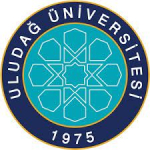- lack of integration among the main food system actors are the biggest obstacle to the adoption of technological and organizational innovation’& ‘Cooperation among relevant Mediterranean stakeholders in the food production and supply chains is encouraged’ & ‘food processing companies, retailers, civil society organizations and consumer associations. In line with its main goal and O6, MEDITOMATO will demonstrate different innovations along the tomato industry value chain.
- Effective organizational and business models, replicable on most of the typologies of Med food companies are necessary. Different innovations (O1 to O5) will be put in place to demonstrate results
(O6) in three demo-sites and then study the feasibility for replication (O8) to other Mediterranean countries considering their specific techno-economic, regulations, codes & standards (RCS), social and environmental constraints.
- Adoption of technological and organizational innovations by smallholders and SMEs. MEDITOMATO implies a series of technology and concepts deployments (O1 to O5) which directly involve organizational changes for their adoption, providing smallholders and SMEs with tools to provide not only high quality products, but also to be more efficient, sustainable and competitive against large companies.
- Proposals should clearly address food production and distribution. The main goal of MEDITOMATO comprises technology developments to add value to production (bringing innovation towards quality, safety, fertigation management and production/processing optimization) and distribution (integrating logistics optimization by means of yield and demand estimation in the global web platform developed in the project as part of O5).
- Activities should focus on chosen Mediterranean food product(s) and be in line with sustainability principles. The project is focused on the tomato industry due to its relevance and exclusivity in the Mediterranean.
- Plans for new, modified or improved value chains, products, processes or services. The project brings significant improvements for the whole value chain and all the concepts deployed will be assessed for replication across the Mediterranean through business cases and simulations in real locations (O8).
- Prototyping, testing, demonstrating, pilot projects or large-scale product validation and must include business and market replication analysis’ & ‘innovative solutions for existing problems, as well as strategies that may potentially open new markets. MEDITOMATO involves three demo-sites (O6) under the real life trial concept.
- Limited research and development. The starting TRL for the solutions in the project are at least 5. Thus, activities are oriented to demonstration in real life trials in the three locations selected.
- Work is expected to benefit from contribution of social sciences. The project will involve Social LCA (SLCA, O8) of the demo-sites to quantify the awareness around MEDITOMATO developments in value chain actors and will study replication of the concept in different PRIMA countries (Greece, Tunisia) considering their specific conditions.
- Solutions to trace origin and identity, ensure safety or exploit digital opportunities. MEDITOMATO strongly relies on digital opportunities, from data collection from IoT sensors (e.g. soil moisture for irrigation, O2 or NIR for quality attributes, O1) to data processing and analysis in cloud platforms (O5) for optimization at all value chain levels (production, processing and distribution).
- EU and Mediterranean quality standardization bodies. Project results will be disseminated (O9) to PRIMA countries quality standardization bodies through CNTA, Spanish National Centre for Food quality and safety and partner in MEDITOMATO.
- financial sustainability in the middle-long term, be harmonized in the context of the regulatory framework, implement communication and marketing strategies’ & ‘validation of technical and economic performance at business and system level. The project will study first the general context of tomato industry and the specific situation of each demo-site to perform the technology developments envisaged in the project.
















